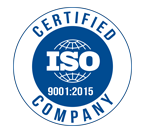Biologically Active Small Molecules, Bottle, Glass, Clear, UN1170, 10 µg
-
(±)11(12)-EET-d11
Cayman ChemicalAn internal standard for the quantification of ±11(12)-EET by GC- or LC-MS.
-
Maresin 2
Cayman ChemicalA 13R,14S-dihydroxy DHA formed by recombinant human macrophage 12-LO and sEH co-incubated with DHA; reduces neutrophil infiltration in a mouse model of peritonitis and enhances human macrophage phagocytosis of zymosan A.
-
13,14-dihydro-15-keto-tetranor Prostaglandin D2
Cayman ChemicalA potential metabolite of PGD2, presumably produced from the known metabolite 13,14-dihydro-15-keto PGD2.
-
Resolvin D3
Cayman ChemicalA DHA-derived product first identified in mouse inflammatory exudates; reduces neutrophil infiltration in vivo in both mouse peritonitis and dermal inflammation; enhances macrophage phagocytosis and efferocytosis.
-
5-iPF2a-VI
Cayman ChemicalIsoprostanes are prostaglandin (PG)-like products of free-radical induced lipid peroxidation. Although the isoprostanes derived from arachidonic acid are the best characterized, many other polyunsaturated fatty acids can form isoprostanes. iPF2α-VI is one of dozens of possible stereo- and…
-
Leptomycin B
Cayman ChemicalA potent anti-fungal antibiotic that can directly block nuclear transport by inhibiting the action of CRM1.
-
Resolvin E1
Cayman ChemicalA proposed anti-inflammatory EPA metabolite that has been shown to promote inflammatory resolution in numerous disease models, including experimental colitis, asthma, atherosclerosis, type 2 diabetes, and HSV-1-induced stromal keratitis.
-
17(R)-Resolvin D1
Cayman ChemicalAn aspirin-triggered epimer of RvD1; reduces human leukocyte transendothelial migration (EC50 = ~30 nM), and limits leukocyte infiltration in a mouse model of peritonitis.
-
Maresin 1
Cayman ChemicalA 7,14-dihydroxy DHA formed from 14(S)-hydroperoxy DHA supplied exogenously to resident peritoneal mouse macrophages activated with zymosan A; reduces infiltration of neutrophils into the mouse peritoneum and increases phagocytosis of FITC-labeled zymosan A by macrophages.
-
13,14-dihydro-15-keto-tetranor Prostaglandin F1a
Cayman ChemicalA potential metabolite of either PGF1α or PGF2α and likely precursor to tetranor-PGFM.
-
Resolvin D1 methyl ester
Cayman ChemicalA methyl ester version of the free acid that may act as a lipophilic prodrug form that will alter its distribution and pharmacokinetic properties.
-
Lipoxin A4-d5
Cayman ChemicalAn internal standard for the quantification of Lipoxin A4 by GC- and LC-MS.
-
Resolvin D2 methyl ester
Cayman ChemicalA methyl ester version of RvD2 which may act as a lipophilic prodrug form that will alter its distribution and pharmacokinetic properties.
-
13,14-dihydro-15-keto-tetranor Prostaglandin E2
Cayman ChemicalA potential metabolite of PGE2, presumably produced from the known metabolite 13,14-dihydro-15-keto PGE2.
-
(±)8(9)-EET-d11
Cayman Chemical(±)8(9)-EET-d11 contains 11 deuterium atoms at the 16, 16' , 17, 17' , 18, 18', 19, 19', 20, 20, and 20 positions. It is intended for use as an internal standard for the quantification of (±)8(9)-EET (Item No. 50351) by GC- or LC-mass spectrometry (MS).…
-
17(R)-Resolvin D1 methyl ester
Cayman ChemicalA methyl ester version of 17(R)-RvD1 which may act as a lipophilic prodrug form that will alter its distribution and pharmacokinetic properties.
-
-
Resolvin D1
Cayman ChemicalA potent anti-inflammatory mediator derived physiologically from the sequential oxygenation of DHA by 15- and 5-LO; reduces human leukocyte transendothelial migration (EC50 = ~30 nM) and limits leukocyte infiltration in a mouse model of peritonitis.
-
17(R)-Resolvin D1-d5
Cayman ChemicalAn internal standard for the quantification of 17(R)-RvD1 by GC- or LC-MS.
-
Resolvin D5
Cayman ChemicalA DHA-derived resolvin that stimulates the phagocytosis of E. coli by human macrophages.
-
7-epi Maresin 1
Cayman ChemicalThe inactive 7(S) epimer of Maresin 1; useful as an experimental negative control.
-
Resolvin D1-d5
Cayman ChemicalAn internal standard for the quantification of resolvin D1 by GC- or LC-MS.
-
5-iPF2a-VI-d11
Cayman ChemicalAn internal standard for the quantification of 5-iPF2α-VI by GC- or LC-MS.
-
Resolvin D2
Cayman ChemicalDampens excessive neutrophil trafficking to sites of inflammation; reduces neutrophil infiltration by 70% at doses as low as 10 pg per mouse and significantly reduces leukocyte adherence and emigration at 1 nM.






















